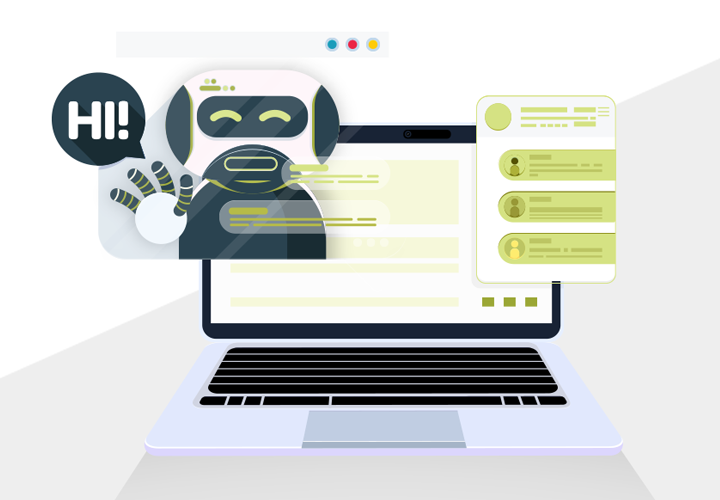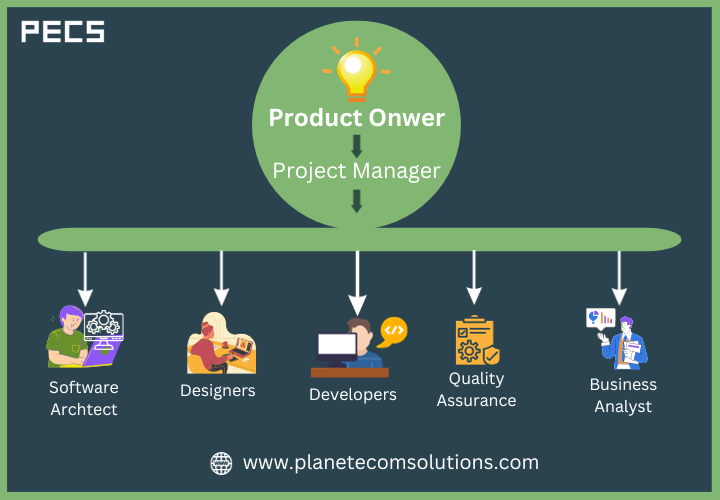Today in the world of technology, businesses consider mobile app development the best way to boost sales and connect with their target audience because more and more people are accessing the internet on their smartphones. So, by investing in mobile app development, businesses can easily reach their customers. As there are so many mobile app development platforms available in the market, choosing the right one can be a daunting task. Here, the big question for businesses is whether to choose native app development or cross-app development. Both platforms had their own pros and cons, but businesses should never compromise on the UI and UX while creating the application. The two popular options available for mobile app development are native app development and Xamarin app development. PECS is the renowned company that has all the tools for native app development for building mobile applications. In this blog post, we will discuss the pros and cons of both approaches.
What is Native App Development?
In native app development, the applications are built specifically for a single platform, such as iOS or Android, by using the programming languages and development tools provided by the platform. For example, you can develop an iOS app by using Objective-C or an Android app by using Java.
Pros of Native App Development
1. High Performance:
Native apps are built for the specific platform for which they are developed. This means the user can take full advantage of the platform’s hardware and software features. It results in high performance and a seamless user experience.
2. Access to Platform:
These apps have access to all the platform-specific features, such as the camera, GPS, and push notifications. This feature helps the developers create apps that are fully integrated with all the platforms and give a rich user experience. It gives offline sync facilities, which means that without internet, these apps can track the data changes on the device.
3. Better User Experience:
As these apps are designed specifically for the platform for which they are developed. Because of this, these apps result in a better user experience and greater user engagement.
4. Flexibility:
The apps are flexible, and developers can take advantage of the features of the platform. They are very easy to publish and can be changed according to the requirements of the app store.
Cons of Native App Development
1. Development Time:
To develop native apps for multiple platforms, it takes development time, deployment time, etc. Each version of the app requires separate end-to-end project management activities; this is also a time-consuming activity.
2. Cost:
To develop native apps for multiple platforms can also be expensive because businesses have to invest again for different versions of the same code. Along with this, each platform requires a separate development team and a different set of development tools and programming languages.
3. Maintenance
The maintenance of native apps for multiple platforms takes time because each platform requires different updates and bug fixes.
What is Xamarin Mobile App Development?
Xamarin is a cross-platform mobile app development technology that allows developers to create apps for multiple platforms by using a single shared codebase in C# and. Net programming language. It also provides access to platform-specific features through its native user interface libraries. In Xamarin, there are 2 developmental approaches, i.e., Xamarin Native and Xamarin. Forms.
Pros of Xamarin App Development:
1. Cross-Platform Development:
Xamarin allows developers to write a shared codebase for Windows, iOS, and Android that can be used on multiple platforms. This saves the developer time and money, as they only need to write and maintain a single codebase.
2. Native User Interface:
In Xamarin, all business logic, database access, and network communication are shared, and it provides access to platform-specific user interface libraries, which means developers can create apps that have a native look and feel on each platform. And the developers can customise the app for each platform.
3. Saves time and money:
As compared to native applications, Xamarin uses a single shared codebase to develop apps for Windows, iOS, and Android. This saves the time and money of the developer during development as well as during testing and maintenance.
Cons ofXamarin App Development:
Xamarin apps provide slower performance and a less responsive user experience. Although Xamarin provides access to many platforms, there are some features that are not available. This can limit the functionality of the app and reduce the user experience.
According to the business need and development goal, the developers choose between native and Xamarin mobile app development. Native app development provides high performance and a better user experience, but it can be time-consuming and expensive. Xamarin allows cross-platform development and easy integration with backend services, but may not provide access to all platform-specific features; this results in performance issues. If you have the budget and resources, then native app development is the best choice. But if you want your business to reach a wider market quickly, then contact PECS, the best Xamarin mobile app development company in Delhi.
Related Posts

Top Backend Frameworks for Web App Development in 2022
Web frameworks have become an important part of the development of both front-end and back-end web applications. It aids in…

Energise your website with an Intelligent Chatbot
This is an era of intelligent web. It is already proven that websites are not only a campaign tool for…

Software Development Team: Key Roles & Structure
In today's digital era, every business needs a software development team to create and maintain their digital products and services.…
